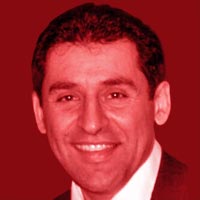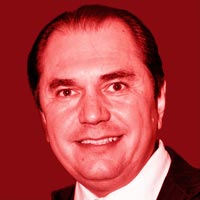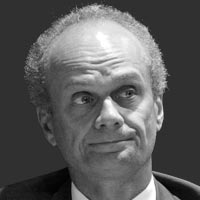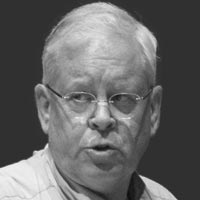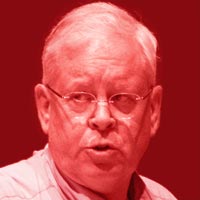Over two decades, four public institutions in Ontario have been manipulated by external forces resulting in a series of tumultuous events:
- The entire board of a Toronto hospital is voted out of office in a single evening.
- A Mafia-owned company is awarded a lucrative contract by the City of Toronto.
- A cabinet minister intimidates a mayor over a proposed housing development.
- A private citizen receives $4-million in unexplained fees after Canada’s largest school board signs an immense contract.







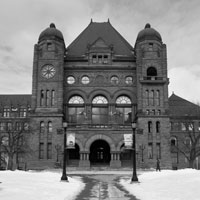


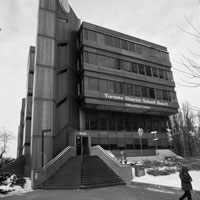

Toronto East
General Hospital
Toronto
City Hall
Queen's
Park
Toronto District
School Board

These ostensibly unconnected events involved elected officials at many levels of government. And they shared a powerful common denominator.












Toronto East
General Hospital
Toronto
City Hall
Queen's
Park
Toronto District
School Board













His name is Spiros Papathanasakis. Along the way he has amassed associates who have enabled his influence, benefited from it, or both.












Toronto East
General Hospital
Toronto
City Hall
Queen's
Park
Toronto District
School Board







































Spiros
Papathanasakis

Now 61, Mr. Papathanasakis is best known for having run the Cabbagetown Youth Centre in Toronto’s downtown east end where he’s made his name as an unvarnished charmer who doggedly advocates for at-risk youth.

Time after time, Ontario premiers and cabinet ministers of all political stripes have used the youth centre as a stage for public announcements, where they are photographed with Mr. Papathanasakis.

Even Canada’s Foreign Affairs Minister Chrystia Freeland paid homage to him during her first run for public office, in 2013, telling The Globe and Mail that he was among the most “visionary” and “transformative” people she had met in her riding.
A Globe and Mail investigation, however, has found Mr. Papathanasakis to be a tireless campaigner not only for the poor and vulnerable but for corporations and his friends. Plying his trade as a sort of underground lobbyist, for more than two decades he has wielded significant pull across a broad range of Ontario’s public-sector institutions.
What’s more, he claims to have links to organized crime: He has boasted that one company for which he lobbied was secretly owned by the Montreal Mafia; he has also spoken openly about intervening to save the life of a high-ranking government bureaucrat who had fallen on the wrong side of certain criminals.
The Globe’s investigation into his influence has itself, of necessity, been lengthy and unusually complex. It began in 2014, when officials at the Toronto District School Board expressed concern that Mr. Papathanasakis seemed to have unexplained sway over its operations. Four years and more than 100 interviews later – backstopped by a deep dive into records obtained both from inside sources and more than a dozen Freedom of Information requests – a picture has emerged of a unique fixer: a man wielding control at certain public institutions, yet who sidesteps the accountability expected of those vested with public power.

The Globe’s investigation has tracked Mr. Papathanasakis’s insider odyssey through four branches of government – where he has leveraged his relationships with politicians, helped install allies in key jobs, and taken credit for pushing taxpayer-funded contracts toward his preferred bidders.
And Mr. Papathanasakis has done all this in concert with an intricate network of associates, including some who, at times, have moved in lockstep with him, and others who have disappeared only to reappear in new ventures involving the public purse. In the words of one investigator tasked with getting to the bottom of dysfunction at the Toronto District School Board: “He keeps turning up like a dirty penny.”
Unlike most behind-the-scenes power brokers, Mr. Papathanasakis is not discreet about his reach, which extends, he says, into high-stakes, big-money public procurements that are supposed to be decided according to objective criteria of quality, suitability, and value to the taxpayer. In June, 2017, under oath, he bluntly stated that he was “doing a good job” of helping firms, which he did not identify, win Infrastructure Ontario contracts. Such public-sector construction deals can be worth hundreds of millions of dollars and are subjected to multiple layers of vetting.
And yet, while the governments of Toronto and Ontario require lobbyists to disclose their interactions with elected officials, Mr. Papathanasakis appears in no lobbyist registries. The stealth by which he has operated exposes the persistence of a brisk and rewarding grey market in political influence, where the right connections, and a determination to call upon them, can secure an inside edge in the pursuit of enormous amounts of public money.
At the same time, the story of Mr. Papathanasakis’s 20-year journey through Ontario’s civic institutions demonstrates how agencies that lie at the heart of local democracy – the kind that affect people’s daily lives – are vulnerable to external meddling.
Exhibit A: the hostile takeover of a public hospital.
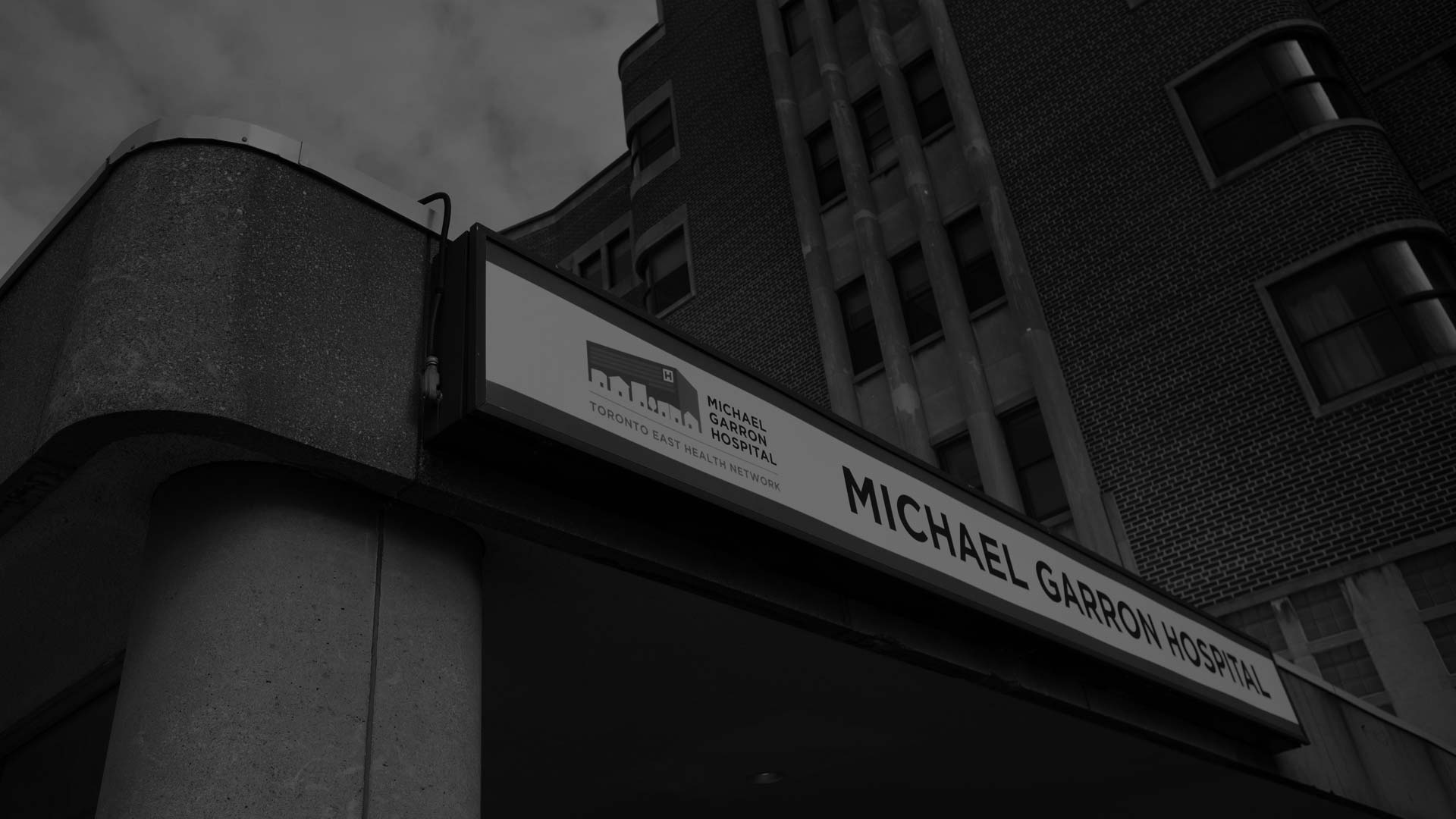
The hospital: The coup at Toronto East General

On the evening of June 11, 1998, a group of doctors from Toronto East General Hospital gathered at a home in the city’s upscale Beaches neighbourhood.
For several months, the physicians had been embroiled in a bitter power struggle with the East General chief executive, Gail Paech. When the doctors concluded that Ms. Paech was overstepping her authority, they revolted. Contributing $1,000 each, they built a war chest and retained a lawyer. Their campaign had an effect: Six weeks before that June meeting, Ms. Paech resigned, a move that she described as an effort to prevent a takeover of the board.
It didn’t work.
The doctors convened that summer night with a second goal in mind: to replace those board members who had resisted reining in Ms. Paech. According to sources present at the meeting, the group’s lawyer had pointed out a little-used hospital bylaw by which anyone willing to pay $25 could become a member of East General and, in turn, vote for the election of board members.
In their host’s wood-panelled library, the doctors were introduced to two people with big ideas for seizing that opportunity:
In the two weeks remaining before the hospital’s annual general meeting, Mr. Papathanasakis set to work. By the time the AGM rolled around on June 25, what had in past years been a sleepy little gathering had to be moved from East General itself to the auditorium of nearby East York Collegiate in order to accommodate the busloads of freshly minted hospital members, a.k.a. the Citizens Group, eager to exercise their democratic rights.
By the end of the meeting, the entire board of directors had been replaced, including Peter Gillin, an investment banker who had served as chair. In an interview last year, Mr. Gillin said he recalled watching in disbelief as a stream of voters flowed into the auditorium. “It was a farce,” he said. “It really was.”
The doctors, meanwhile, revelled in their victory, but not without some reservations. They had wanted to curtail Ms. Paech’s plans, but never envisioned that partnering with Mr. Jakobek and Mr. Papathanasakis would lead to this: more than 1,000 new hospital members – and the complete overhaul of the board.
Charles Lefkowitz, a cardiologist and vice-president of the Medical Staff Association at the time, told The Globe he recalled wondering about the forces the doctors had unleashed. “We set in motion,” he said, “a process that we no longer could control.”
‘The political machine’
It began with a total revamping of the board.
The ascendancy of the Citizens Group was near complete, except for one roadblock: the hospital’s new CEO, Janet Davidson, who had been a high-ranking bureaucrat in Alberta’s Ministry of Health. Eminently qualified, she was also not beholden to either Mr. Jakobek or Mr. Papathanasakis. Originally recruited to serve as the hospital’s second in command – arriving just a few months before Mr. Jakobek was hired – she had risen through the ranks under the radar.
In interviews with The Globe, Ms. Davidson said that, from the start, she struggled to understand what value Mr. Jakobek and Mr. Papathanasakis brought to East General. Their influence over the board, though, became increasingly clear. Mr. Papathanasakis was not shy about asserting that the hospital’s organizational chart did not begin to reflect the actual power he wielded. His message, says Ms. Davidson, was that he had “connections that would get you fired or get the board changed.”
Over several months, Ms. Davidson, and many of the doctors who began to rally to her side, pieced together the long game they suspected was being played: Mr. Jakobek was trying to resurrect his political career, and running a hospital would be a perfect launching pad for such a comeback. And she was the only thing in his way.
In the fall of 2001, just before Ms. Davidson flew to Switzerland for a board meeting of the International Red Cross, she gave the hospital board a heads-up that she had decided to terminate Mr. Jakobek’s position.
In response, the board mobilized. With Ms. Davidson safely across the Atlantic, the board hatched plans to grant themselves an unprecedented veto – over Ms. Davidson – on all personnel changes.
When word reached Ms. Davidson of the efforts afoot to thwart her, she rushed home. Arriving, unannounced, at a special board meeting on Nov. 1, she made it clear that any efforts to interfere in the CEO’s hiring and firing of staff was an abuse of board power.
News of the brewing war also reached her bureaucratic masters in the Ministry of Health. John King, an assistant deputy minister at the time, said he urged Tony Clement, who was the health minister, to step in. “There was definitely a group of people,” Mr. King said in an interview, “trying to take over control of the hospital.”
Eventually, the board backed down and Ms. Davidson finally had her chance to fire Mr. Jakobek. He pre-empted her and resigned. (When The Globe contacted Mr. Jakobek about this story, he said he was “not really interested” in commenting, before hanging up.)
The hospital’s doctors, meanwhile, fully backed Ms. Davidson. In a letter to the province, they warned that the problems with the board were putting patient care at risk.
With the support of Mr. King in the ministry, Mr. Clement signed off on a formal review of the “processes of governance” at the hospital. A consulting company, The Solutions Group, was tasked to investigate.
Like many government reports, this one did not name names. It did, however, place blame for the chaos directly at the feet of the “local political machine” behind the board. “In 1998, 1999 and 2001, a deliberate effort was made by people external to the process to manipulate and influence the process for nominating new candidates for election to the board,” stated the report, dated Feb. 21, 2002. The consultants found much else awry: There were board members who lacked proper grounding in a hospital board’s role and responsibilities. What’s more, a “growing number” of these directors had an “agenda that does not appear to be in the best interests of the hospital.” And those directors were not even the ones in charge, the report found, stating that the “the locus of power was centred outside the board.”
And in fact, when investigators interviewed Mr. Papathanasakis himself, he baldly asserted that his job at the hospital was to control the board and ensure that Mr. Jakobek would become CEO. “A staff member in the organization openly and freely admits his control of the board,” read the final review. “This person routinely end-runs the CEO.”
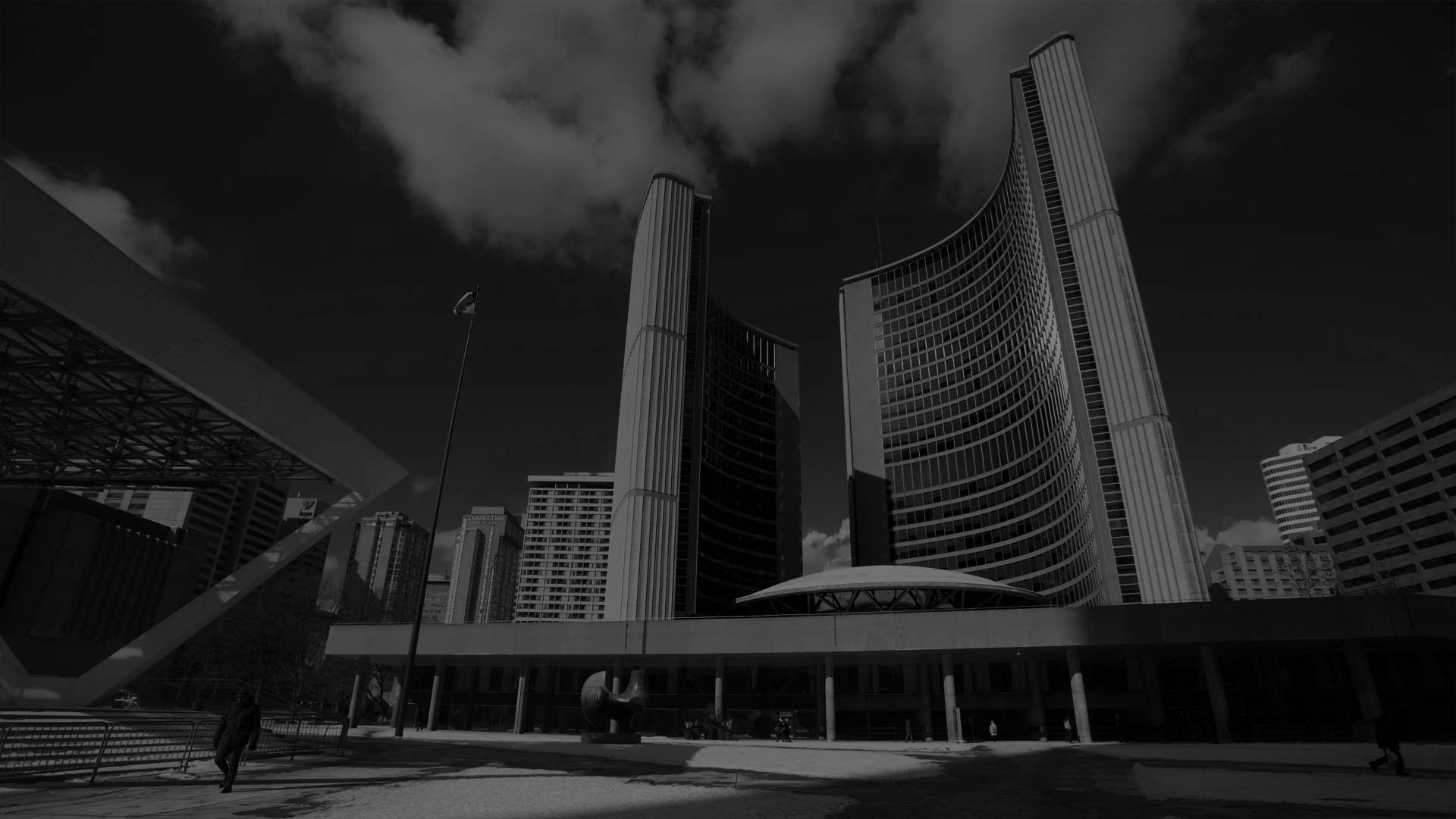
City Hall: The garbage bins, the Rizzutos and the bureaucrat

While the drama was unfolding at East General, another civic project sponsored by Mr. Papathanasakis was rolling out across the city.

In 1999, Toronto contracted a start-up advertising company, OMG Media, to erect large metal waste-and-recycling bins across the city. OMG supplied the bins for free, with a catch: They had to bear ads sold by OMG – which would keep 90 per cent of the revenue generated; the city would get the other 10 per cent, plus $15 a year per bin.
By mid-2000, there were nearly 1,200 such bins on city streets. And they got there, it seems, with support from Mr. Papathanasakis’s network.
He also let some associates in on a little secret: On paper, OMG’s owners were businessmen in nearby Vaughan; but he told two people, who spoke to The Globe, that OMG was partly owned by people associated with the Montreal Mafia.
And in fact, in February, 2003, a year after Mr. Papathanasakis’s associates were forced out of East General, Quebec’s La Presse newspaper reported that a Montreal police officer had pulled over a Jeep Grand Cherokee registered to one OMG Media – and whose driver was none other than Vito Rizzuto, the leader of Canada’s Sicilian Mafia.
Because OMG had ad-bin contracts not only with Toronto but with Ottawa and Montreal, it suddenly appeared that three of Canada’s four largest cities had signed contracts with a company partially owned by the Mafia.
OMG – and Mr. Rizzuto himself – vehemently denied that the mobster had anything to do with the company. Neither was entirely forthcoming: Years later it would emerge in a court dispute between Revenue Canada and the Rizzuto family that Mr. Rizzuto’s wife, Giovanna, and their three children owned shares in OMG that they had sold for $1.6-million.
Mr. Papathanasakis’s indiscretions about OMG being mob-controlled were clearly accurate. What, then, about the credit he was taking for the company’s contract with the city of Toronto?
And he declined to answer subsequent written questions about his own ties to the company.
But one person with evidence of those ties is David Miller. After announcing his intention to run for mayor in January, 2003, Mr. Miller, then a city councillor, was in his office, when his phone rang. On the other end was Mr. Bacopoulos.
“He … asked me if my campaign would be interested in an advertisement on OMG bins, and he indicated he could get a discount,” Mr. Miller recalled in an interview. “This was highly irregular and unusual behaviour for a civil servant,” the former mayor said. “Even more unusual was when the person overseeing the contract was, in effect, acting as a salesman for the company.” (At the time, Mr. Miller reported the incident to a superior of Mr. Bacopoulos.)
In 2005, Mr. Bacopoulos abruptly left his position as head of Toronto’s waste division. His departure had nothing to do with his phone call to Mr. Miller, who said he was not aware of the reason.
But that didn’t affect Mr. Bacopoulos’s standing with Mr. Papathanasakis. Before long, the two men were working in concert – lobbying a different government on an issue that provided Mr. Papathanasakis with another opportunity to tout his ties to “the street.”

Queen’s Park: The housing development, the mayor, and the minister

Caledon, a community of towns and villages northwest of Toronto, is a popular address for city dwellers building weekend getaways and for working families seeking a place to settle down within driving distance of nearby Brampton and Orangeville. But it is home to something else as well: one of the last refuges of unspoiled agricultural land in the Greater Toronto Area.
The site of sharp tussles between developers and residents determined to maintain Caledon’s pastoral appeal, it has on occasion also been a place of turmoil.
On May 23, 2008, John Morrison, husband of then-mayor Marolyn Morrison, noticed that his car was being followed by a black Cadillac Escalade. After pulling into the parking lot of the high school where he taught, Mr. Morrison was approached by two men wearing dark clothes and sunglasses.
“We would like to talk to you about your wife,” one of them said. The pair suggested they had embarrassing photographs of her.

Mr. Morrison called their bluff: “Show me the pictures.” Neither man produced any.
Suddenly changing the subject, one of them said, “We want to develop, and your wife is holding us up and we need her to get the rest of council onside.”
The other man said the development in question was “in Inglewood,” the rural village of about 800 people where the Morrisons lived at the time. (It was a confusing remark, because, as both Morrisons would later testify in court, there weren’t any disputed housing developments in Inglewood.)
The men departed when a fellow teacher walked over to check in on Mr. Morrison. Once safely inside the school, Mr. Morrison called the police.
Then, 10 days later, in his own driveway, the mayor’s husband was struck on the head, and left bleeding on the ground, by an attacker who fled the scene. Based on Mr. Morrison’s description of the Escalade from the previous week – he had remembered part of its vanity licence plates – Ontario Provincial Police officers tracked down its driver, Vladimir Vranic.
An internal OPP report, dated July 30, 2008, and obtained by The Globe, states that Mr. Vranic, a resident of nearby Woodbridge at the time of the assault, “has known links to the Commisso organized crime family.”
Arrested by police, Mr. Vranic made no effort to dissuade them from thinking he had underworld ties. But he denied any part in the assault, claiming, according to an arrest report, “that ‘his group’ would not attack in such a ‘Mickey Mouse’ manner. They would ‘blow up a car’ or kidnap someone.”

Mr. Vranic, who had a criminal record for assault, eventually pleaded guilty to threatening Mr. Morrison.
In addition to the extra-legal threats made on Ms. Morrison’s husband, the council she headed soon found itself the object of a legal one. A few weeks after Mr. Vranic’s arrest, a company called Solmar Development Corp. sent a letter, warning that it was prepared to sue Caledon for $500-million. That threat came in the wake of a refusal by Ms. Morrison and her council to permit more population growth near the Caledon village of Bolton, where Solmar had proposed a development that could house 21,000 people – almost as many new citizens as Bolton was then home to.
(Solmar has denied that it had anything to do with Mr. Vranic’s threat or the attack on the mayor’s husband. The company has also pointed out that it has no connection to any developments in Inglewood, which is where Mr. Vranic and his associate said they were interested in developing.)
Ms. Morrison and her council colleagues felt so under siege – by both the violence and Solmar’s legal drumbeats – that they appealed to the provincial government to launch a public inquiry. In a July, 2008, letter to then-premier Dalton McGuinty, Ms. Morrison said that he had a duty to help her and her fellow councillors. The town’s planning decisions, she said, had been made to comply with Ontario’s growth plan, but the result had been “threats to personal safety and lawsuits.” She pleaded with the premier: “The province needs to take action.”
But the province turned her down in a letter that declined to address either the physical attack or the threatened litigation. (In response to questions from The Globe, Mr. McGuinty said that he had no recollection of Mayor Morrison’s request for an inquiry.)
In fact, though, at least one government agency had taken notice; and it was mobilizing. Later that month, the Ontario Provincial Police quietly launched a multipronged investigation into the troubles in Caledon. In court filings, the force described its probe as an examination of “alleged organized crime within the Town of Caledon.”
It was against this heated backdrop that, on Sept. 9, 2009, the phone rang at the home of one of Ms. Morrison’s close friends, a retired politician named Nancy Koehle.
Someone had enlisted the help of Mr. Papathanasakis and his vast network of contacts.
‘I can make everything go away’
In a detailed statement to the OPP two weeks later, the audio of which was obtained by The Globe, Ms. Koehle recalled one part of that conversation: “I said, ‘Oh, who wants a meeting with the mayor?’ He says, ‘I can’t tell you, but he’s well connected.’ ”
She told Mr. Bacopoulos it seemed absurd that someone would ask the close friend of a mayor to help schedule time with an unnamed person. He said he would call her back.
He did. And at his request, she agreed to meet. At a local Tim Hortons, he revealed that the unnamed person wanted to speak about a housing development that had been turned down. He also told her: “There’s good money in this for you ... I’m talking, like, $10,000 to $15,000 if this goes through.”
Ms. Koehle replied, “I don’t need the money.” She told him again that, in light of “the grief” the Morrisons had been put through, she needed to know the name of the person who wanted to meet the mayor, as well as the name of the housing project.
That night, Mr. Bacopoulos called Ms. Koehle again, with an answer to the first of those two questions: It was Spiros Papathanasakis, and he was on the line with Mr. Bacopoulos.
And true to form, he rhymed off a list of the politicians he said he knew. What’s more, he intimated that his power extended beyond the Legislature, and even Parliament.
“I’m actually frightened,” she would later tell the police, adding that Mr. Papathanasakis referred to himself as “well versed in the street” and that he kept saying, “I know how to make these things go away” – a comment she took to mean that he could stop the underworld forces targeting the Morrisons.
She told the police she was thinking “Holy good Lord, what have I got myself into here?” But she stayed on the line long enough to get a sense of Mr. Papathanasakis’s agenda.
He launched into an argument about why certain agricultural land south of Bolton should be zoned for housing. Ms. Koehle told police she could not recall whether Mr. Papathanasakis identified the developer, but she said that she raised the name Solmar a number of times in her conversations with Mr. Bacopoulos and with Mr. Papathanasakis. Neither man said whether he was calling on behalf of the company, she said.
(In response to questions from The Globe, Jay Naster, a lawyer for Solmar, said it had no role in the phone calls to Ms. Koehle and that the company has “never enlisted the assistance of Mr. Papathanasakis” for anything. Although Solmar was the proponent behind the development south of Bolton, Mr. Naster pointed out that, at the time of the phone calls to Ms. Koehle, the company owned only a portion of the farmland where it sought to erect houses; Mr. Papathanasakis, he said, may have been acting for one of the “dozens of other people” who owned land in the area.)
When Ms. Koehle asked why Mr. Papathanasakis was involving himself, he said he was “doing this for a friend, or a friend of the family’s,” albeit a family he did not name. At another point he told her “I don’t work for those guys,” without specifying which “guys” he meant.
Then, he cut to the chase: He wanted her to set up a meeting between him and Mayor Morrison, and he left Ms. Koehle with the impression he wanted no one else there.
Ms. Koehle contacted Ms. Morrison, who told her she was willing to meet with anyone – with, that is, one coda of her own: At least one of her staff, as always, must be present.
That demand did not go over well when Ms. Koehle called back Mr. Bacopoulos. “He said, ‘Oh no, they wanted a one-on-one,’ ” she would later tell police.
Despite her ongoing misgivings, she took part in one final conference call with Mr. Bacopoulos and Mr. Papathanasakis, during which the latter sought “guidance” about how to approach Ms. Morrison. It was at this point, Ms. Koehle said, that she got the sense that they wanted her to negotiate with Ms. Morrison on their behalf. She had enough and told the pair she wanted “out of this.”
In her interview with the police, which took place two days after her last exchange with the two men, Ms. Koehle said that particularly unsettling were the allusions Mr. Papathanasakis made to his pull “on the street.” When describing his history with Mr. Bacopoulos, he explained to her that at one point Mr. Bacopoulos had been in danger, and that Mr. Papathanasakis “got the trouble backed off.” If not for his actions, he added, Mr. Bacopoulos “might have been dead.”
In a brief interview with The Globe, Mr. Bacopoulos acknowledged introducing Mr. Papathanasakis to Ms. Koehle, but he denied knowing anything else about the matter. Asked about once being in danger, and Mr. Papathanasakis saving his life, Mr. Bacopoulos said he had no idea what Mr. Papathanasakis was referring to.
But the phone calls stuck with Mayor Morrison, who made her own statement to police. She was left to ponder why Mr. Papathanasakis was so keen to meet with her – and without witnesses.
‘I hope you’re not in the Bolton area’
About the same time that Ms. Koehle was running interference for Ms. Morrison, a big change was unfolding in downtown Toronto. George Smitherman, the long-time MPP for Toronto Centre, had decided to take a shot at becoming Toronto’s next mayor.
In a letter several months after that interview, Mr. Naster, the Solmar lawyer, said that the company never discussed its business with Mr. Papathanasakis. Speaking on behalf of Mr. Rogato, the lawyer said Solmar’s planner has “no relationship with Mr. Papathanasakis and has never met with Mr. Papathanasakis nor discussed the business of Solmar with Mr. Papathanasakis.” This denial includes, Mr. Naster said, any alleged meeting that took place with Mr. Murray and Mr. Papathanasakis.
But the meeting stuck out for the Liberal insider who spoke with The Globe; the involvement of Mr. Papathanasakis – who is neither a home builder nor a resident of Caledon – was puzzling. “I never could figure it out,” the source said.
When asked by The Globe last year, Mr. Murray said he didn’t have “any immediate recollection” of such a meeting.
In the years that followed, under Premier McGuinty, Mr. Murray would oversee ministerial portfolios involving research and higher education. Then, in February, 2013, Kathleen Wynne became premier, and welcomed him into her first cabinet, as minister of infrastructure and transportation.
His was a daunting portfolio: thousands of kilometres of highways and bridges, as well as oversight of Infrastructure Ontario, which was then awarding contracts for numerous projects, including hospitals, a light-rail network in Ottawa, and the facilities for the Toronto-based Pan American Games. Yet, a little more than a month into the job, he took an interest in another matter: Solmar’s proposed housing development in Caledon, which, a decade on, was still in play.
On March 23, 2013 – a Saturday – Mr. Murray travelled to the farm fields south of Bolton that Solmar sought to build on.
In an interview with The Globe last year, Mr. Murray acknowledged that he did not travel alone, but he declined to identify whom he was with, other than to say it was a “planner” or “consultant” for Solmar. (Mr. Naster, the Solmar lawyer, said that Mr. Rogato did not recall accompanying Mr. Murray that day, adding that it is “possible” that the minister was with someone from the external planning firm used by Solmar.)
During his site visit, Mr. Murray e-mailed his chief of staff, David Black, and asked him what powers he had, as minister, with respect to the housing development.
Mr. Black responded with blunt advice: “There is no action you can take.”
Mr. Black (who is now chief of staff to Infrastructure Minister Bob Chiarelli) declined to respond to questions from The Globe. But his e-mails to Mr. Murray – obtained under the Freedom of Information Act – show he was concerned that his boss was with someone from Solmar.
And that was potentially a big problem. Solmar had taken Caledon to the Ontario Municipal Board, the quasi-judicial body that has the power to overturn the planning decisions of cities and towns, and a decision had yet to be rendered. But the OMB can be overruled by cabinet – which is why, Mr. Black warned his boss that day, ministers are forbidden from interacting with developers currently before the tribunal.
“I hope you are not in the Bolton area with anyone who might have an active OMB case,” Mr. Black e-mailed to Mr. Murray. “Ministers meeting with active OMB appellants can be grounds for the Premier to ask for your resignation because it can look like you are trying to influence the outcome of an OMB case.”

The FOI documents did not include any response from Mr. Murray.
But his interest in Bolton did not fade. On April 18, Mayor Morrison and two of her staff drove to Queen’s Park at the request of Mr. Murray.
According to Ms. Morrison and another staff member present that day, Mr. Murray scolded them for what he said was poor planning. He had a specific idea, too: The swath of land south of Bolton should be designated for homes.
Next, Minister Murray asked all of the aides, including his own, to leave the room. All of a sudden Ms. Morrison found herself in the type of meeting she had long refused to take – one without witnesses. And what unfolded next reminded her why.
“In my opinion, he threatened me,” said Ms. Morrison, who recounted the exchange, over several interviews with The Globe. “He told me that he had some complaints against me that were very serious and that he could make them go away if I changed those lands to residential.”
Ms. Morrison, then in her 10th year as mayor, insisted she had done nothing wrong, and that Mr. Murray could do whatever he liked with those “complaints.”
As he prepared to leave the room, she says, the minister repeated one more time that she “had better” permit homes on that land.
Speaking to The Globe, Mr. Murray said he didn’t recall asking anyone to leave the room partway through the meeting, but did not deny doing so. “It was never rude or heated,” he also said of the meeting. “It was generally pleasant.”
As for Ms. Morrison’s account of the one-on-one portion, he declined to address any of its particulars.
Over several interviews, Mr. Murray provided a number of explanations for his interest in the housing development that are difficult to reconcile with e-mails obtained by The Globe.
When asked why he got involved in a debate about a residential-housing development, he replied: “I was not involved in those issues. They were not the business of my ministry.”
When asked to explain why, then, he wrote his staff an e-mail, which included “Solmar” in the subject line, instructing them to “let me know what … powers I have to act on this,” he told The Globe: “That might have been an older e-mail chain that I had pulled up on my Blackberry at the time and responded to.”
Mr. Murray’s e-mail is the first in the chain. There is no indication that the e-mail was created by anyone but him.
Mr. Murray also said that he called the meeting with Mayor Morrison because she and the town of Caledon were not adhering to Ontario’s official growth plan – what he called a problem that had persisted “for many years.”
At the time of their meeting, Mayor Morrison and her town had sought help from a different part of the Ontario government, outside of Mr. Murray’s purview.
Canadian Tire, the retail giant, wanted to construct, north of the land where Solmar had proposed its development, a massive distribution centre, which would bring jobs that the mayor and her council very much wanted. But Canadian Tire could not start construction without special permission from the minister of municipal affairs and housing – at the time, Linda Jeffrey – a provision called a ministerial zoning order. (The order was ultimately granted later in 2013.)
In his interviews with The Globe, Mr. Murray explained that, given the town’s request for this special zoning order, he wanted to send a message that the town should “start meeting” its responsibilities under Ontario’s growth plan.
But Mr. Murray’s claim that the town had a long-standing history of not complying with the growth plan was a curious one. In fact, one of his predecessors had publicly praised Mayor Morrison and the town for their planning.
At a 2008 summit of mayors, councillors and planners, the infrastructure minister at the time, George Smitherman, had singled out Ms. Morrison and her council for not caving in to legal threats from developers and instead “standing firm on the growth plan.”
In interviews, Ms. Morrison’s former staffers corroborated aspects of her account of the Queen’s Park meeting. “I’ve never seen her so mad in my life,” said one of the staff members instructed by Mr. Murray to vacate the room that day. “I think it took her the whole trip back up to Caledon to calm back down.”
There is another person whom Ms. Morrison says she told about the encounter: Ontario Premier Kathleen Wynne.
In December of 2013, she heard Ms. Wynne on the radio claiming, in the wake of a massive ice storm, that she had spoken with all the mayors in the GTA. Ms. Morrison – who had lately become disenchanted with politics and had decided not to seek re-election the following year – became enraged: She had never heard from the Premier in the storm’s aftermath.
And so she sent the Premier a letter that made a pointed reference to a TV ad, filmed in Caledon, that showed Ms. Wynne out for a run. “Perhaps you have forgotten that Caledon is one of the GTA municipalities, not just a scenic location north of the city to film jogging commercials.”
Not long after, says Ms. Morrison, Ms. Wynne called her and said, “I got your letter … I don’t understand why you’re so upset.”
“I’ll tell you why,” the mayor replied, and chronicled Mr. Murray’s conduct. She says Ms. Wynne told her “I’ll be dealing with him.”
Ms. Morrison said that, at the time of that phone call, she didn’t realize that Solmar had donated $20,000 to Ms. Wynne’s 2012 leadership campaign – a sum that was among the largest contributions it received.
It was the last time she spoke with Ms. Wynne. When asked about the donation, Mr. Naster, the Solmar lawyer, said the developer “has made donations not only to members of the provincial Liberal Party, but also to the PC and NDP parties, all within appropriate legal parameters.”

THE SCHOOL BOARD AND THE SOLAR DEAL

The Toronto District School Board is a bit like a sovereign state nestled within a larger city. It operates 583 schools, owns a huge portfolio of real estate, and has an operating budget greater than the City of Ottawa’s.
After his hiring, he was put in a position of influence over a hugely ambitious project that involved a novel plan to repair aging roofs on hundreds of schools – at no cost to the board. Months before Mr. Bacopoulos was hired, the board had invited bidders to repair those roofs, fit them with solar panels, and sell the electricity produced to the province’s power grid. The board was seeking to take advantage of Ontario’s new Green Energy Act – which offered a guaranteed revenue stream to wind and solar companies.
The board estimated the project would generate as much as $1.2-billion over 20 years; at the time, it was the largest public procurement of solar power in Canada.

The procurement attracted huge interest: When Mr. Bacopoulos started his job in June, 2010, eight bidders had already submitted their proposals, and he was invited to join the committee of senior staffers evaluating them.
That September, the board met to vote on bidders with whom to begin negotiating. The solar committee, including Mr. Bacopoulos, wrote a report seeking permission to do so with two preferred entities: their first-ranked consortium, led by AMP Solar, a small company; and more-established companies making up a consortium called EduSolar.
But at the meeting, Mr. Bacopoulos suddenly argued that the board should negotiate with the smaller AMP – and no one else – according to two staff members present at the session. Those staffers were taken aback when he departed from the report’s recommendation that, if the committee could not reach an agreement with AMP, it should be given the green light to negotiate, instead, with EduSolar. The reasoning: While AMP had presented the more attractive bid, there was concern that the company could not finance such a large project, according to the two staff members.
Meanwhile, an ally of Mr. Papathanasakis on the board pitched in to derail the committee’s recommendation. Just before the meeting began, that trustee quietly told many of her colleagues that a member of the solar committee had a conflict of interest with the EduSolar group, according to a source at the meeting. There was no such conflict. In the end, the trustees voted to give the committee the go-ahead to negotiate only with AMP, according to documents obtained by The Globe.
As it happens, this was a major victory for two other figures within Spiros Papathanasakis’s network – and would lead to an enormous green-energy contract that, in turn, would result in the payment of $4-million in fees to one of those figures.
‘Our real inside guy’
When the board supported Mr. Bacopoulos’s endorsement of AMP, it did not have one important piece of information at hand: Months earlier, a company called Potentia Solar Inc. had already started talks with AMP about partnering with it on the school-roofs deal.
Potentia was a relatively new player on the scene but, unlike AMP, it had access to a deep reservoir of capital.
In addition to the suggestion that Potentia had an “inside guy” at the school board when the solar-panel deal was signed, The Globe’s investigation has revealed another curious feature of the potentially billion-dollar deal: $4-million in “brokerage service fees,” paid by Potentia, that no one is willing to explain.
And where did that money go? To a company owned by Ted Manziaris.
The payment was made in two parts: The first, in 2013, was for roughly $719,000. The second, in 2014 (the year that Potentia finalized the deal to install panels on 311 school roofs) was for $3.2-million – a hefty 14 per cent of Potentia’s total revenue that year.
Both payments were captured in the notes to Potentia’s 2014 consolidated financial statements, and it is there that they are described in footnotes as “brokerage service fees.”
Everyone involved in the payment has refused to answer repeated questions about the “service” provided by Mr. Manziaris.
Certainly within Potentia, the payments were controversial. At least one official wanted to know why Potentia would part with so much of its shareholders’ money. The answer Mr. Argiros gave: Mr. Manziaris “got us the contract.”
Mr. Manziaris declined to answer questions from The Globe about what work he performed, or even the name of the company that received the payment. In a brief phone call, he repeatedly told a reporter to ask Mr. Argiros, why he, Mr. Manziaris, had been paid so much.
In a recent statement to The Globe, Potentia itself declined to answer that question. But it staunchly defended the logic of parting with 14 per cent of its annual revenue: “The arrangement with the company controlled by Mr. Manziaris was an industry-standard commercial arrangement, at market rates,” said Ms. McDonald, Potentia’s general counsel. “Any amounts received by him were appropriate in the circumstances and there is no valid reason to believe otherwise.”
Mr. Bolton, the school-board chair throughout much of the solar-roof negotiations, was a vocal supporter of the project.
However, Mr. Bolton declined to say what he knew, if anything, about the $4-million in payments or about allegations that his close associate, Spiros Papathanasakis, was involved in the deal. “Mr. Bolton has retired from public life,” his lawyer, Philip Tunley, said in a statement. “He has received your letter and questions, but he has no interest in any of the matters addressed in them.”
Ryan Bird, a spokesman for the Toronto District School Board, was unable to answer most of the questions from The Globe because, he said, those officials who presided over the solar contract are no longer there.
While other levels of government have placed restrictions on the payment of commissions in connection with the awarding of a public contract, Mr. Bird said the school board has no such policies. He said the board is not aware of any fees having been paid in connection with the solar contract.

A man of influence

The Globe sent detailed questions about Mr. Papathanasakis’s involvement in all the public-sector institutions in this story to three of his lawyers and to his personal residence in Cabbagetown. A reporter also visited the Cabbagetown Youth Centre but Mr. Papathanasakis and his associates no longer have official roles with the charity. The sole response to The Globe’s questions came from lawyer Robert Cohen, who said his client will hold the newspaper “fully accountable for the publication of any false and defamatory statements.”
Mr. Papathanasakis’s whereabouts have been the subject of some speculation in Greece, where he had owned a professional soccer team until its bankruptcy last year.
The team, named Iraklis, is based in the northern city of Thessaloniki and was purchased by Mr. Papathanasakis in 2014. At his introductory press conference, he was asked by local reporters there what he does for a living in Canada. He laughed and said, “My mother says she doesn’t know what I do.”
Since then, however, Greek reporters have been writing critically about his time at the helm of the Iraklis. The team’s financial woes, as well as its relegation to a less competitive league, have rendered Mr. Papathanasakis persona non grata with fans of the team. In a radio interview in Greece in January, a former administrator with Iraklis said he didn’t think Mr. Papathanasakis had “the courage to return” to the city.
He did, though, surface in Toronto last June, to take part in a legal proceeding at which he claimed, under oath, that he was able to influence Ontario public-sector contracts. Because his connections run so deep, he testified, he has singlehandedly helped bidders win publicly tendered infrastructure contracts worth hundreds of millions of dollars.
The legal proceeding centred on the Marquis of Granby, the Toronto pub Mr. Papathanasakis opened in 2012, and where he subsequently hosted school-board officials, including former chair Mr. Bolton.
The pub operated in a building that Mr. Papathanasakis – and a silent partner – had purchased through a numbered company in 2012. The partners’ long-term plan was to erect a condominium tower on the property; in the meantime, Mr. Papathanasakis opened the Marquis.
In 2016, however, he had a falling-out with his partner, when the Marquis stopped paying rent to their numbered company. While Mr. Papathanasakis was in Greece, the partner evicted the pub, and sought a court order removing him as a director of the numbered company.
And so it was that in June, 2017, Mr. Papathanasakis returned to Toronto to fight the proposed court order and to be questioned by a lawyer for his partner, who is a major player in Ontario’s construction industry.
Asked under cross-examination how he got to know his partner, Mr. Papathanasakis made the following claim: “[He] wanted to win Infrastructure Ontario jobs and he knew I was doing a good job of it, and by knowing me, he thought he’d get to know some people and win, which he did.”
He said his partner “was making a lot of money from the help I was giving him.”
Mr. Papathanasakis provided no evidence about how he could help anyone get a leg up in such a process. Infrastructure Ontario bids are evaluated by independent teams with expertise in design, engineering and finance. They score submissions using objective measures, and each assessment team is required to reach a consensus before recommending one company over others.
In a statement, a spokesman for Infrastructure Ontario highlighted these “strict controls.” As for Mr. Papathanasakis and his claims, the spokesman said: “We can’t respond to a vague comment that offers no actual connection to our work.”
Nevertheless, Mr. Papathanasakis did indeed know people with a lot of pull in the world of public-sector infrastructure. He has, for instance, touted his relationship with George Smitherman, who was infrastructure minister from 2008 to 2009.
Speaking to The Globe, Mr. Smitherman said he was never influenced by Mr. Papathanasakis and that his policy was to keep his “feet moving” if their discussions veered away from the Cabbagetown Youth Centre and toward other government business. But Mr. Smitherman acknowledged it was conceivable that Mr. Papathanasakis might insinuate to others that he had the ear of the long-time provincial politician and seek to profit from that.






